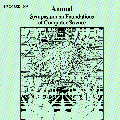We consider low-space algorithms for the classic Element Distinctness problem: given an array of $n$ input integers with $O(\log n)$ bit-length, decide whether or not all elements are pairwise distinct. Beame, Clifford, and Machmouchi [FOCS 2013] gave an $\tilde O(n^{1.5})$-time randomized algorithm for Element Distinctness using only $O(\log n)$ bits of working space. However, their algorithm assumes a random oracle (in particular, read-only random access to polynomially many random bits), and it was asked as an open question whether this assumption can be removed. In this paper, we positively answer this question by giving an $\tilde O(n^{1.5})$-time randomized algorithm using $O(\log ^3 n\log \log n)$ bits of space, with one-way access to random bits. As a corollary, we also obtain a $\operatorname{\mathrm{poly}}(n)$-space $O^*(2^{0.86n})$-time randomized algorithm for the Subset Sum problem, removing the random oracles required in the algorithm of Bansal, Garg, Nederlof, and Vyas [STOC 2017]. The main technique underlying our results is a pseudorandom hash family based on iterative restrictions, which can fool the cycle-finding procedure in the algorithms of Beame et al. and Bansal et al.
翻译:我们考虑用于经典元素区别问题的低空算法 : 但是, 给经典元素区别问题的低空算法 : 考虑到一个以美元( log n) 为单位的输入整数, 以美元( log n) 为单位的比特, 确定是否所有元素都是不同的。 Beame, Clifford 和 Machmouchi ( FOCS 2013) 给出了 $\ tilde O( n=1.5 ) 的 美元( = = 1.5 ), 用于元素区别的 时间随机算法, 仅使用 $O (\ log n) 位的工作空间 。 但是, 他们的算法是随机的( 特别是只读取多倍( 多位) 的随机访问 ), 并且被问成一个开放式的问题 。 在本文件中, 我们给出了 $\\\\\ liforalal 算法的 算法 $( ==) licalalalalalalal cal roal roal roal) roal oral oral 。 在Sal- sqal- ASqal- sqal- ASqolalsalsals 中, roal roal- salbalbalbals roalbalbalbals roal roals roal roal roal roal roal roalbalbalbal rodal, 中, 。 rotoal roal roal rodal rocal rodal roal 。 rod rodal rocals rocal rocal rocal rocal rocal rocal rocal, rod rod rod rod rod rodal roal rodal rodal rod rod rod rod rod rod ro rod rodal rodal rodal rod roal roal roal ro ro ro ro ro ro ro





